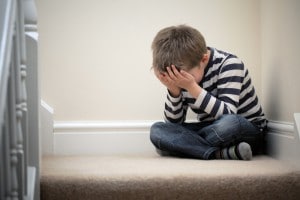Notice to readers of Eu sem Fronteiras: This article is not a scientific article that aims to judge the possible consequences of childhood trauma. For a more technical and scientific approach, I always advise consulting a psychologist. This text has a proposal only to motivate and provoke a reflection on the subject.
How many times have I heard that phrase: “So-and-so is needy because of the difficult childhood he had”. And the person becomes a reason for pity for those around him. But can we really blame childhood for the constant need for affection and affection that someone in need may have?
According to research done in the United States, this is not always true. In a study where children of schizophrenic mothers were observed for years, about 15% of them ended up becoming more mature and balanced adults than people who didn't have a difficult childhood. Many of the other children developed mentally and emotionally within the average and only a few of them had serious mental problems after years.
 What this study shows us is that the child's personality and the way he manages to face challenges from an early age is much more decisive than the context in which he grows up. Going through difficult situations early in life can even be a way for a person to learn to be more responsible and to have more determination than a child with an ordinary life. Of course, not everyone has this personality trait developed so early in life.
What this study shows us is that the child's personality and the way he manages to face challenges from an early age is much more decisive than the context in which he grows up. Going through difficult situations early in life can even be a way for a person to learn to be more responsible and to have more determination than a child with an ordinary life. Of course, not everyone has this personality trait developed so early in life.
But the important thing about this study is to show us how we don't need to be held hostage by childhood trauma. If you feel any hurt or are stuck with memories that make you feel down, let go of them. Live in the present and let all the love and affection in the world come naturally into your life, not forced or prompted by pity.
And, if you live with very needy people, encourage them to look for something that raises their self-esteem. Feeling good about yourself is the first step in not depending on the attention of others as if it were a drug that fills an inner void. This void only begins to be filled by valuing who the person is and feeling good about it. Instead of feeding a need and pity from others, encourage them to overcome past traumas and live in the present with self-love. You will do a lot of good for these people.
- Written by Ricardo Sturk from Team Eu Sem Fronteiras.

























